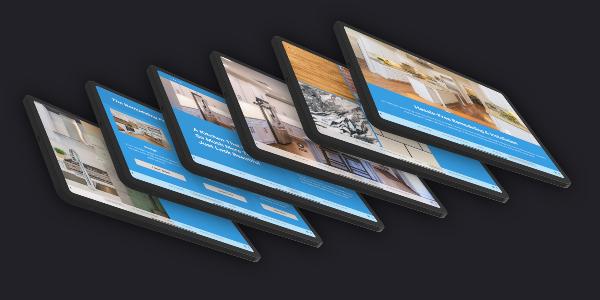UP TO THE MINUTE
The Psychology of Selling in the Roofing Industry: Why People Buy

By John Kenney, Cotney Consulting Group.
If you're a roofing contractor, understanding the motivations behind your customer's decisions can elevate your sales and service delivery.
When it comes to the intricacies of sales, Brian Tracy's "The Psychology of Selling" is considered one of the paramount resources in the world. Dive into chapter three of his book, and we are confronted with a compelling question: "Why do people buy?" While the book provides insights that cater to a wide array of businesses, let's specifically home in on the roofing industry.
The emotional purchase
Tracy points out that buying is primarily an emotional act. While the necessity for a roof is apparent – protection from the elements – the choice of a roofing contractor is deeply rooted in emotion. Customers may have fears about leakage, structural damage or escalating repair costs in the future. This makes them look for a roofing solution that addresses their basic needs and assuages these anxieties.
The influence of perceived value
People don't just buy products or services; they buy the benefits and value they believe those products or services will deliver. For a roofing contractor, this means your customers are buying peace of mind, security and comfort. They want to feel that the investment in their roof will result in durability, aesthetics and an overall enhanced property value.
Trust and credibility
As Tracy discusses in his book, trust plays a crucial role. In the roofing industry, the stakes are high. Roofing projects can be expensive, and homeowners often have to grapple with the fear of choosing the wrong contractor. Testimonials, certifications, warranties and past projects serve as vital tools in establishing this trust. The longer a roofing contractor can guarantee their work, the more it can alleviate longterm concerns.
Solutions, not roofs
When a potential client contacts a roofing contractor, they're not seeking just a pile of shingles or tiles but solutions. Maybe they're looking for a more energy efficient roof to reduce bills or need rapid repairs after a storm. Understanding and listening to these unique problems will enable roofing contractors to position themselves as the solution provider, which Tracy identifies as a key aspect of why people buy.
Urgency and timing
Tracy emphasizes the role of timing in the buying decision. In the roofing world, this could mean offering limited time discounts or emphasizing the risks of not addressing a roofing problem immediately. Roofing contractors can help homeowners make quicker, more decisive actions by creating a sense of urgency.
The importance of self concept
Brian Tracy emphasizes the self concept of salespeople as a crucial factor in selling. Roofing contractors need to see themselves as more than just service providers. They are consultants and experts who bring invaluable knowledge to homeowners. How a contractor views himself or herself can strongly influence their confidence, which impacts the trust they instill in potential clients. If a contractor truly believes in their expertise and the value they bring, they'll radiate this belief, making it easier for homeowners to trust them.
The dominance of the major selling idea
Tracy talks about the importance of having a major selling idea. This means having a unique proposition for roofing contractors that sets them apart from competitors. Maybe it's a specialized technique, exclusive materials or an unparalleled guarantee. Roofing contractors can distinguish themselves in a crowded market by emphasizing this major selling idea in all marketing and sales pitches.
Tapping into customer dreams
People often buy not because of what the product is but because of what they believe it can do for them. Homeowners don't just want a new roof; they want a home that looks beautiful, feels secure and increases in value. They're investing in their dream home, even if it's just one shingle at a time. Roofing contractors should aim to tap into this dream. Instead of selling just a roof, they should sell the idea of a rejuvenated, beautiful and safe home.
Asking the right questions
One of Tracy's notable points is the importance of asking questions. Instead of pitching services right away, roofing contractors should begin consultations with questions. "What's your biggest concern with your current roof?", "How do you want your house to look and feel?" or "What are your long-term plans for this property?" By understanding the client's needs and desires, a contractor can tailor their services more effectively, ensuring the client feels heard and valued.
Post purchase assurance
After a sale, the psychology of selling doesn't just end. Tracy highlights the significance of post purchase interactions. For roofing contractors, this could translate into follow up calls to ensure the client is satisfied, reminders for maintenance checks or even a simple thank you note. This not only builds trust but also encourages referrals and repeat business.
The role of visualization
Tracy delves into the importance of visualization in successful selling. For roofing contractors, this can be interpreted in two ways:
Visualizing success: Visualizing a positive outcome can boost confidence and improve the overall presentation before interacting with a potential client. Contractors can navigate sales conversations more effectively by anticipating a homeowner's concerns and seeing themselves addressing them efficiently.
Helping customers visualize: For many homeowners, it might be hard to envision the end result of a roofing project. Using digital tools, mock ups or even photo references of past projects can help customers visualize the transformation, making them more inclined to invest.
The fear of loss versus the desire for gain
Tracy discusses how the fear of losing something can often be a more significant motivator than the desire for gain. In the context of roofing:
Fear of loss: Emphasizing potential damages, increased costs or deteriorations if a roofing issue isn't addressed can push homeowners to decide. The idea of facing larger problems down the road because of inaction can be a compelling argument.
Desire for gain: While the fear of loss is a potent motivator, showcasing benefits like increased property value, enhanced curb appeal or energy savings can entice homeowners with the positives of getting a roofing job done.
Continual learning and adaptation
Brian Tracy is a staunch advocate for constant learning and adaptation in sales. Roofing contractors should be ever evolving, staying updated with the latest roofing technologies, materials and techniques. By showcasing their up-to-date knowledge and commitment to best practices, contractors can assure homeowners of their expertise and dedication.
The law of indirect effort
Tracy's concept of the law of indirect effort suggests that you often get sales by not directly trying to get them but by focusing on the client's needs. Roofing contractors can implement this by not pushing hard sales pitches but by offering genuine advice, conducting thorough inspections, and understanding a homeowner's unique concerns. Often, this consultative approach can yield better results than direct sales tactics.
In the vast world of sales and service delivery, the roofing industry is a testament to the marriage of technical know-how and psychological understanding. Drawing from Brian Tracy's seminal work, "The Psychology of Selling," we've journeyed through the myriad factors influencing buying decisions, especially when a home's protection is at stake. As you continue in the roofing industry, remember that understanding the nuanced interplay of emotions, trust, visualization and value is crucial. This article merely scratches the surface. To truly master the art of selling in the roofing world, one must continuously dive deeper, learning, adapting and evolving. Stay tuned as we delve further into these concepts, ensuring you're equipped and empowered to elevate your roofing business to unparalleled heights.
Learn more about Cotney Consulting Group in their Coffee Shop Directory or visit www.cotneyconsulting.com.




















Comments
Leave a Reply
Have an account? Login to leave a comment!
Sign In